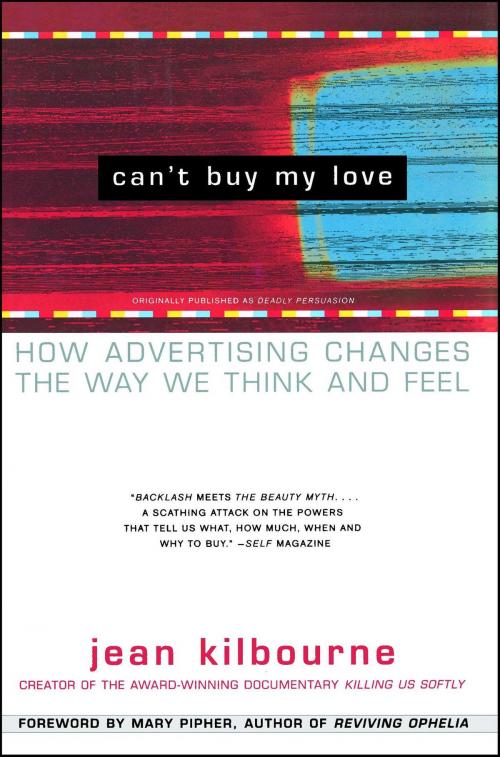Can't Buy My Love
How Advertising Changes the Way We Think and Feel
Business & Finance, Marketing & Sales, Advertising & Promotion, Nonfiction, Social & Cultural Studies, Social Science, Gender Studies, Women&| Author: | Jean Kilbourne | ISBN: | 9781451698411 |
| Publisher: | Free Press | Publication: | June 26, 2012 |
| Imprint: | Free Press | Language: | English |
| Author: | Jean Kilbourne |
| ISBN: | 9781451698411 |
| Publisher: | Free Press |
| Publication: | June 26, 2012 |
| Imprint: | Free Press |
| Language: | English |
"When was the last time you felt this comfortable in a relationship?"
-- An ad for sneakers
"You can love it without getting your heart broken."
-- An ad for a car
"Until I find a real man, I'll settle for a real smoke."
-- A woman in a cigarette ad
Many advertisements these days make us feel as if we have an intimate, even passionate relationship with a product. But as Jean Kilbourne points out in this fascinating and shocking exposé, the dreamlike promise of advertising always leaves us hungry for more. We can never be satisfied, because the products we love cannot love us back.
Drawing upon her knowledge of psychology, media, and women's issues, Kilbourne offers nothing less than a new understanding of a ubiquitous phenomenon in our culture. The average American is exposed to over 3,000 advertisements a day and watches three years' worth of television ads over the course of a lifetime. Kilbourne paints a gripping portrait of how this barrage of advertising drastically affects young people, especially girls, by offering false promises of rebellion, connection, and control. She also offers a surprising analysis of the way advertising creates and then feeds an addictive mentality that often continues throughout adulthood.
"When was the last time you felt this comfortable in a relationship?"
-- An ad for sneakers
"You can love it without getting your heart broken."
-- An ad for a car
"Until I find a real man, I'll settle for a real smoke."
-- A woman in a cigarette ad
Many advertisements these days make us feel as if we have an intimate, even passionate relationship with a product. But as Jean Kilbourne points out in this fascinating and shocking exposé, the dreamlike promise of advertising always leaves us hungry for more. We can never be satisfied, because the products we love cannot love us back.
Drawing upon her knowledge of psychology, media, and women's issues, Kilbourne offers nothing less than a new understanding of a ubiquitous phenomenon in our culture. The average American is exposed to over 3,000 advertisements a day and watches three years' worth of television ads over the course of a lifetime. Kilbourne paints a gripping portrait of how this barrage of advertising drastically affects young people, especially girls, by offering false promises of rebellion, connection, and control. She also offers a surprising analysis of the way advertising creates and then feeds an addictive mentality that often continues throughout adulthood.















